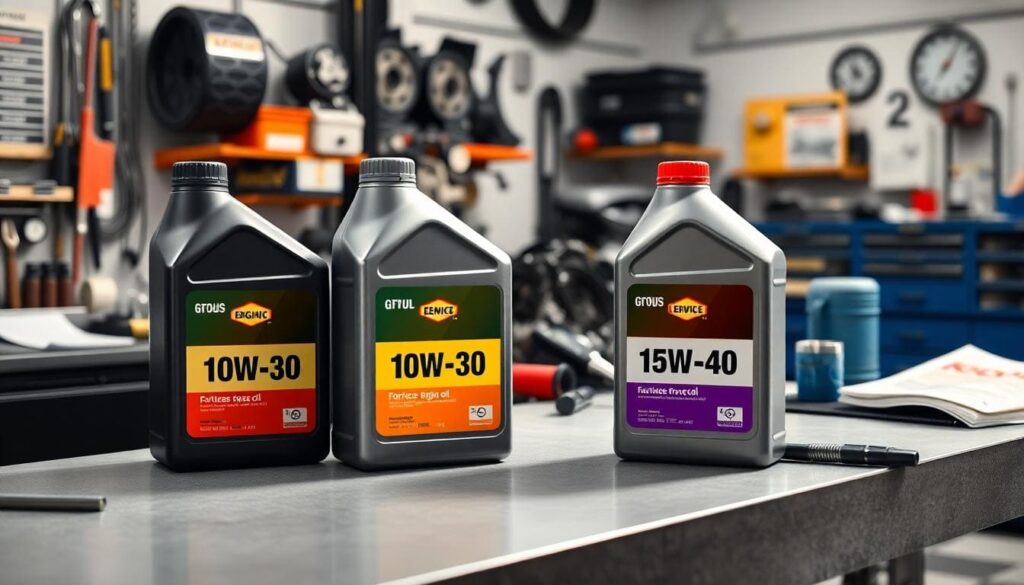Engine oil serves as the lifeblood of diesel engines, ensuring performance, reducing wear, and optimizing efficiency. Selecting the correct oil grade is critical for maintaining engine health, especially given the varying demands of diesel engines in different environments. This guide was developed with clarity, accuracy, and objectivity to help diesel engine operators make well-informed decisions.
Understanding Engine Oil Grades
When choosing an engine oil, the grade serves as a fundamental indicator of the oil’s ability to flow under specific temperature conditions. The numbers and letters in grades like 10W-30 or 15W-40 are not arbitrary—they are carefully engineered measures of viscosity. Understanding these labels is important for picking the right oil for your diesel engine.
- What Does “W” Mean in Oil Grades?
- The “W” refers to winter and represents the oil’s viscosity in low temperatures.
- For example, in 10W-30, the “10W” means the oil flows efficiently in colder climates, making it suitable for cold starts.
- The Numbers After the ‘W’ Explained:
- The number to the right of the “W” (e.g., 30 or 40) indicates viscosity at high operating temperatures.
- Higher numbers mean the oil is thicker, better suited for providing protection in hot engine conditions.
Quick Example: An oil grade like 15W-40 offers a good balance for regions with moderate winters and warmer summers. It flows in temperatures as low as -20°C while maintaining viscosity for 40°C or higher temperatures.
- Single-Grade Oils vs. Multi-Viscosity Oils:
- Single-Grade Oils (e.g., SAE 30): Best for engines operating in stable, high-heat environments. They lack versatility for varying temperatures.
- Multi-Viscosity Oils (e.g., 5W-30 or 15W-40): Designed for adaptability, providing reliable lubrication in both cold starts and high temperatures.

How to Choose the Right Oil for Your Diesel Engine
Selecting the right oil depends on several factors—ambient temperature, engine design, and workload demands. Here are practical considerations to guide your decision:
- Ambient Temperature: Use oil grades recommended in your engine manual that correspond to local climate conditions. For example:
- Colder Environments: Opt for lighter grades like 5W-30 for easier cold starts.
- Hotter Environments: Use heavier grades like 15W-40 that protect the engine under high temperatures.
- Engine Design: Modern diesel engines with tighter tolerances often perform best with synthetic, multi-viscosity oils.
- Usage Intensity:
- For engines used in towing, hauling, or extended high-load tasks, thicker oils like 15W-40 provide thermal stability and wear resistance.
- For light driving or short commutes, thinner oils like 10W-30 improve fuel efficiency and reduce strain.
Key Tip: Always refer to the manufacturer’s recommendations in your vehicle’s manual for exact oil specifications.
Objective Brand Comparison: AMSOIL, Mobil 1, and Royal Purple
To help readers make informed decisions, we analyzed three popular brands—AMSOIL, Mobil 1, and Royal Purple.
1. AMSOIL
- Strengths:
- Engineered with consistent molecular structures, AMSOIL synthetic lubricants excel in reducing friction and enhancing fuel efficiency.
- Exceptional performance in extreme hot and cold temperatures.
- Long oil change intervals, reducing downtime for busy operators.
- Best For: Fleet owners and high-performance users requiring extended protection and efficiency.
- Considerations: Premium price, suitable for users prioritizing long-term value.
2. Mobil 1
- Strengths:
- Trusted for its advanced synthetic technology and excellent all-temperature performance.
- Readily available and competitively priced in most markets.
- Best For: General users seeking a balance of affordability and performance.
- Considerations: Shorter oil change intervals compared to AMSOIL.
3. Royal Purple
- Strengths:
- Known for high-performance formulations that boost fuel economy and reduce engine heat.
- Offers quick engine responsiveness, ideal for demanding tasks.
- Best For: Users with specialized or high-performance diesel engines.
- Considerations: Niche availability and higher cost relative to competitors.

FAQs About Diesel Engine Oils
1. What if I use the wrong oil grade?
The wrong grade can lead to poor lubrication, reduced performance, increased wear, and difficulty starting in extreme conditions.
2. Can you mix oil grades?
Mixing grades is generally not recommended as it can compromise the oil’s properties, resulting in suboptimal performance.
3. Are synthetic oils worth the cost for diesel engines?
Yes, synthetic oils offer superior protection, longer intervals, and better start-up performance under extreme temperatures compared to conventional oils.
4. How often should you change diesel engine oil?
Follow the manufacturer’s service intervals. Synthetic oils often last longer (up to 10,000 miles or more,) while conventional oils require more frequent changes.
Why Does the Right Oil Matter?
Using the proper oil grade and type extends your engine’s lifespan, reduces wear, and improves performance under various conditions. For diesel engines, this means smoother cold starts, efficiency in high-heat conditions, and reduced maintenance costs over time.
Choosing the right oil is not just about performance—it’s about protecting your investment. Whether you opt for AMSOIL, Mobil 1, or Royal Purple, prioritize quality, compatibility, and your specific operating needs to guarantee the best possible results.
